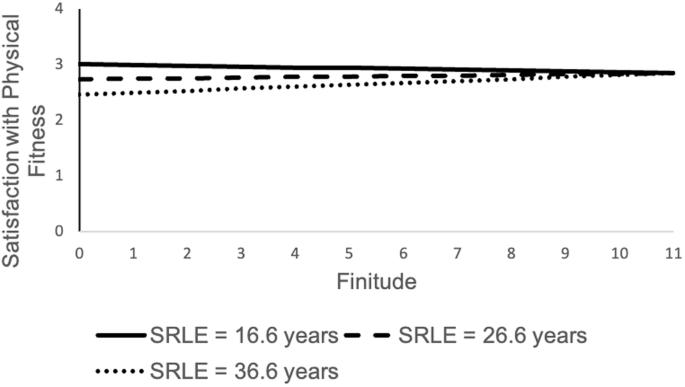Longitudinal associations between time perspective and life satisfaction across adulthood
引用次数: 0
Abstract
Time perspective is an important predictor of well-being. How time is represented, is itself subject to developmental change. A time perspective dominated by the future is increasingly replaced by one focused on the present and past as remaining lifetime decreases. These age-related changes supposedly are associated with higher subjective well-being. Previous studies yielded heterogeneous results. However, these studies mostly investigated one dimension of time perspective and did not include younger and/or middle-aged adults. Thus, we investigated how changes in four facets of time perspective (past-orientation, concreteness of future time, obsolescence, and attitudes towards finitude) were related to changes in life and domain-specific satisfaction and if these relations were moderated by age. We used 10-year longitudinal data from an age-diverse sample comprising 459 participants (30–80 years). Concreteness was most consistently related to satisfaction. Individuals with overall higher concreteness reported higher life satisfaction and higher life satisfaction was reported on measurement occasions with higher concreteness. An age moderation was only found for satisfaction with mental fitness. Among younger but not older adults, satisfaction with mental fitness was higher on measurement occasions with higher concreteness. Our study provides a deeper understanding of the relation between time perspective and well-being across adulthood. Across occasions and individuals, perceiving the future more concretely was associated with greater life satisfaction for adults aged 30 to 80 years. Age moderated this association in the domain of mental fitness with stronger associations for younger adults.

时间观念与成年期生活满意度之间的纵向联系
时间观念是幸福感的重要预测因素。时间的表现方式本身也会随着发展而变化。随着剩余寿命的减少,以未来为主导的时间观逐渐被以现在和过去为主导的时间观所取代。据称,这些与年龄有关的变化与主观幸福感的提高有关。以往的研究得出了不同的结果。然而,这些研究大多只调查了时间观的一个维度,而且没有将年轻人和/或中年人包括在内。因此,我们研究了时间观的四个方面(过去取向、未来时间的具体性、陈旧性和对有限性的态度)的变化与生活和特定领域满意度变化的关系,以及这些关系是否受年龄的调节。我们使用了由 459 名参与者(30-80 岁)组成的不同年龄样本的 10 年纵向数据。具体性与满意度的关系最为一致。总体具体程度较高的个体报告的生活满意度较高,在具体程度较高的测量场合报告的生活满意度也较高。只有在心理健康满意度方面发现了年龄调节。在年轻人中,精神健康满意度在具体程度较高的测量场合较高,而在老年人中则不然。我们的研究加深了人们对时间视角与成年期幸福感之间关系的理解。对于 30 至 80 岁的成年人来说,在不同场合和不同个体中,对未来的感知更具体与更高的生活满意度相关。在心理健康领域,年龄调节了这种关联,年轻成年人的关联性更强。
本文章由计算机程序翻译,如有差异,请以英文原文为准。
求助全文
约1分钟内获得全文
求助全文

 求助内容:
求助内容: 应助结果提醒方式:
应助结果提醒方式:


